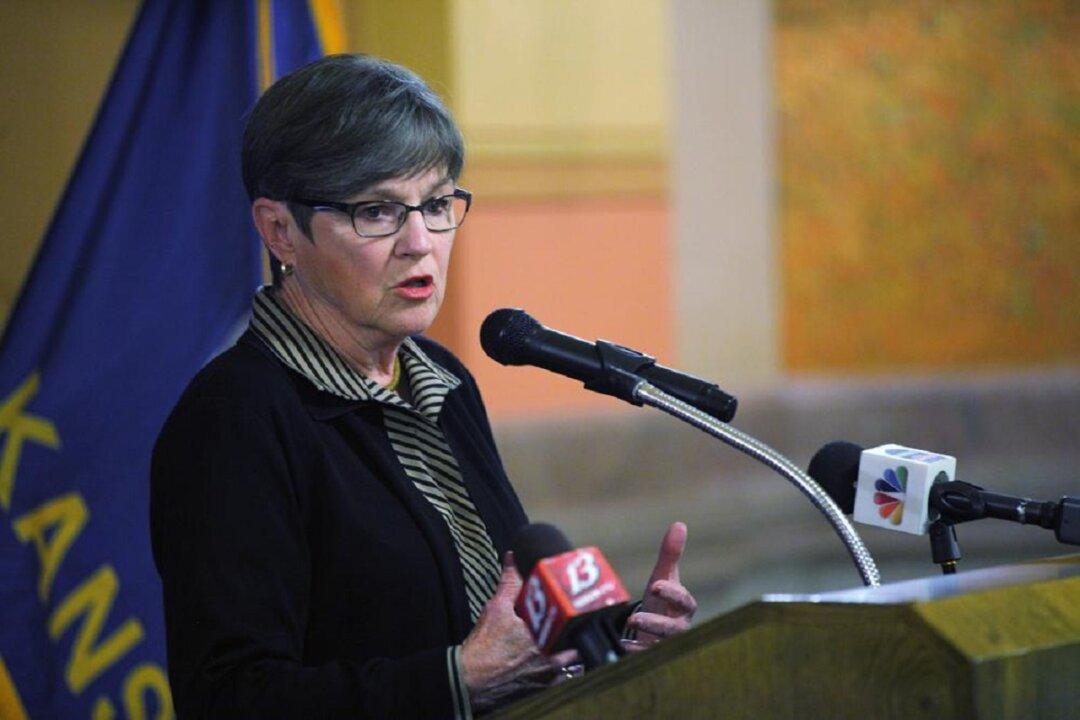Kansas Gov. Laura Kelly on April 23 vetoed election reform legislation and a measure that would have let more people carry guns.
Kelly, a Democrat, vetoed two bills that would have changed election laws, such as requiring counties to verify signatures on early voting ballots and making it illegal for any person to knowingly alter a postmark on a mail-in ballot.





